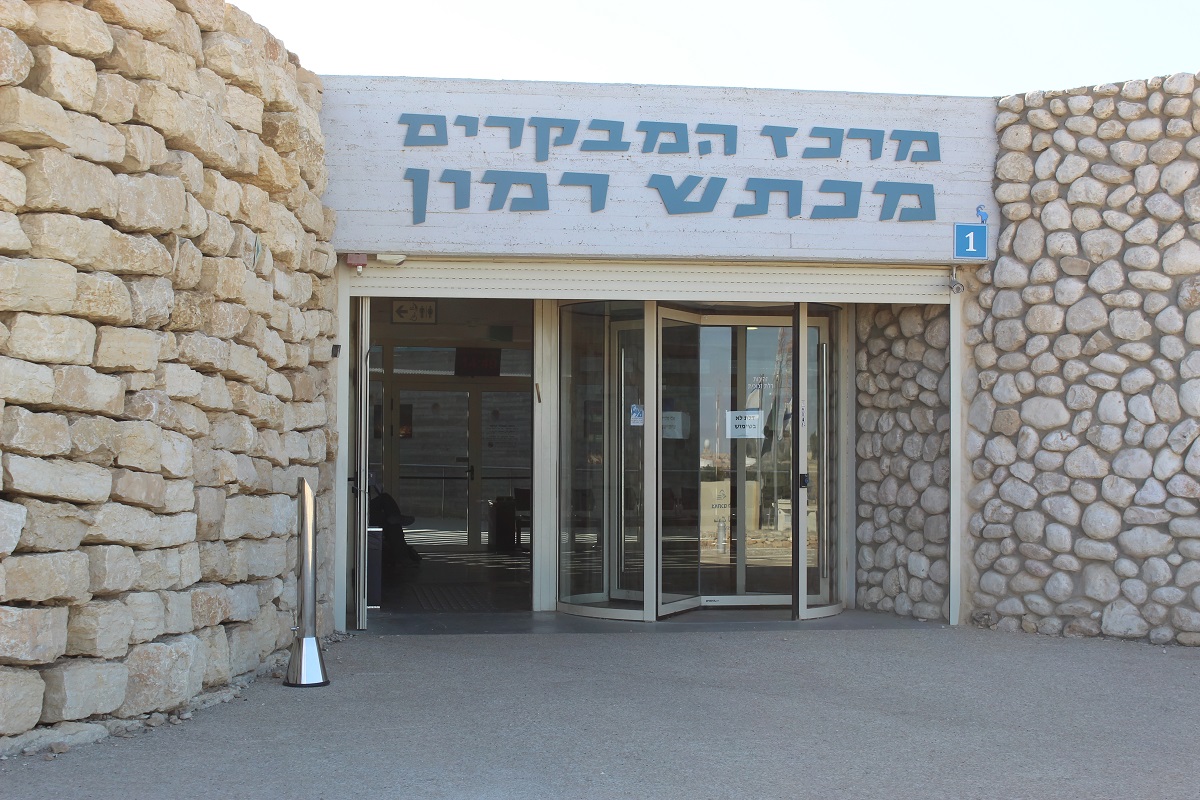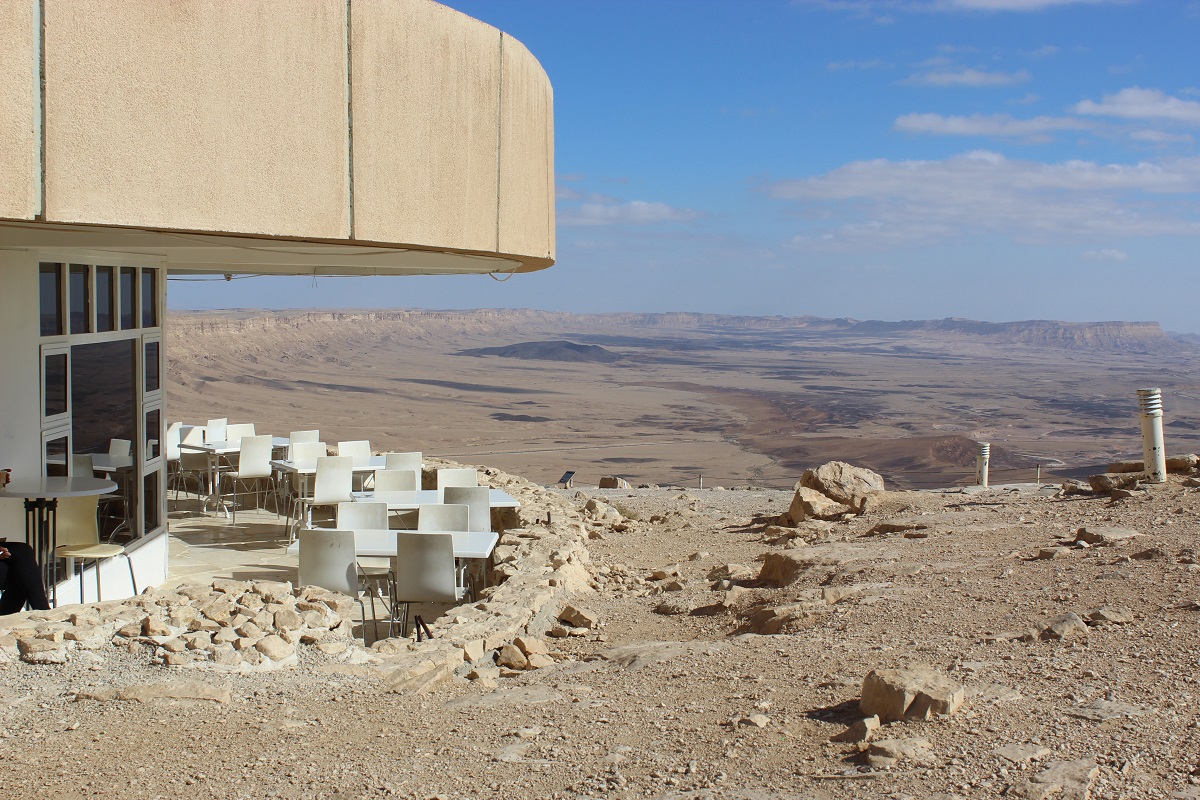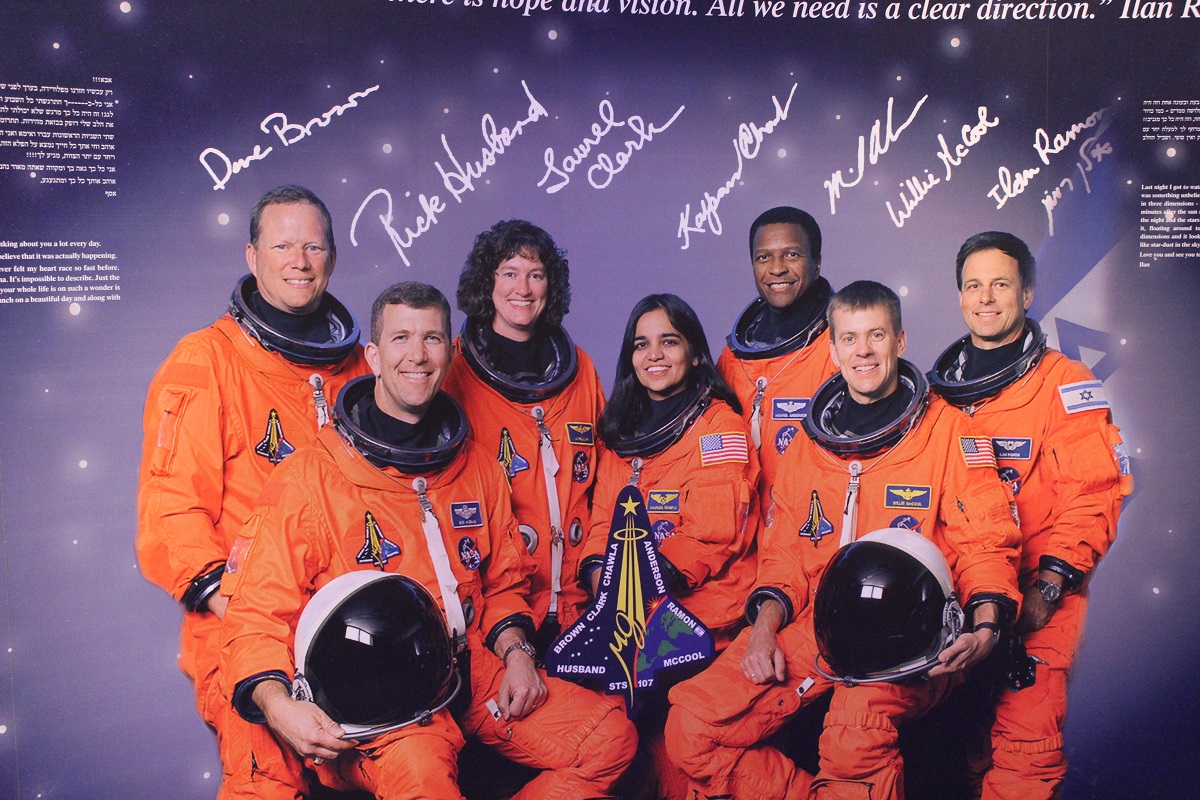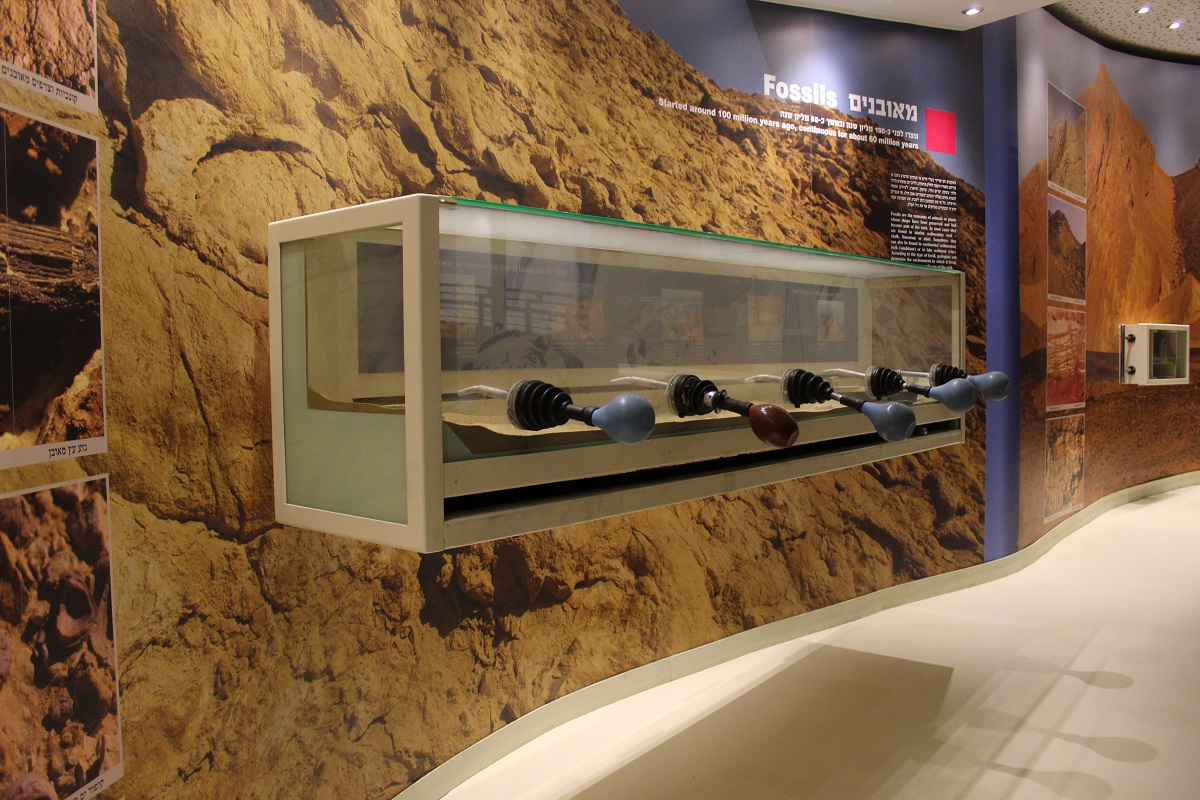
The Visitors’ Centre is a place to visit during a snow storm, a rain storm, a dust storm or in a heat wave. You will never see a queue of people waiting to go in but coaches are parked outside. People leaving the visitors’ centre look as if they have just woken up.
It is located on the rim of the makhtesh, just off route 40 at the point at which the road starts its descent. It is an observation point for looking down into the makhtesh, it is also situated on the Albert Promenade, and it is next to a Bedouin tent café, a souvenir shop and a restaurant (perfect place for a drink, not your best bet for food).
The Visitor’s Centre has three aspects:
- It is where you go get information about hiking in the crater (Makhtesh)
- It is a memorial to astronaut Ilan Ramon.
- It has static and audio-visual displays explaining the geology of the Makhtesh, its flora and fauna [you can ask to see the films in your language by two-days prior arrangement].
It takes around one hour and you can’t cut it short, it’s like going to IKEA you have to do the whole thing, but you can’t even do it at your own rhythm. The door to the next display only opens once everything is done. It costs 28 shekel per person unless you only walk in for the hiking information.
Ilan Ramon’s memorial
The first half of the visit (2 rooms) is dedicated to Ilan Ramon, a well-known fighter pilot in his day, he was a passenger on the doomed Columbia Space Shuttle [February 2003]; His son Assaf, also a fighter pilot, was killed in 2009 and Ilan’s widow Rona died in 2018 at the age of 54. The presentation contains momentos of his life, of the space capsule and a film of him during his 16 day space mission. Apart from the fact that Ilan Ramon and Mitzpe Ramon happen to share the same name, there is no real link between the two. Or maybe it is the fact that Mitzpe Ramon is home to Israel’s second astronomical observatory, and is now a mecca for star-gazing activity, making it a natural location for the memorial? As a result, some younger Israelis now think the crater is named after the man, and some older Israelis think that the man [previously Ilan Wolferman] took the name because he liked hiking in the crater.

This is not in any way a state-of-the-art presentation – it is what it is – but if you pass through it with a group of older Israelis as we did, you cannot but be impressed and moved by their awed reaction; the Ramon family has come to symbolize the heroism and sacrifice of a nation and so this exhibit is loaded with meaning for the Israeli visitor.
The geological formation of Makhtesh Ramon
The third room is the only one dedicated to what you were probably looking for: an explanation of the geological formation of this wonder. Unfortunately, most of the design of this exhibition reminds me of a museum I visited 40 years ago in the USSR. Thin, wooden and old-fashioned – not likely to impress a party of Israeli schoolchildren – but the documentary film is quite good.

The local fauna and flora
The fourth room is a nice (if only slightly dated) and short documentary about the fauna (your best chance to see the animals who are mainly nocturnal) and the flora of the Makhtesh.
I hope I haven’t dampened your expectations excessively but I’m just not a fan of visitors’ centres.

